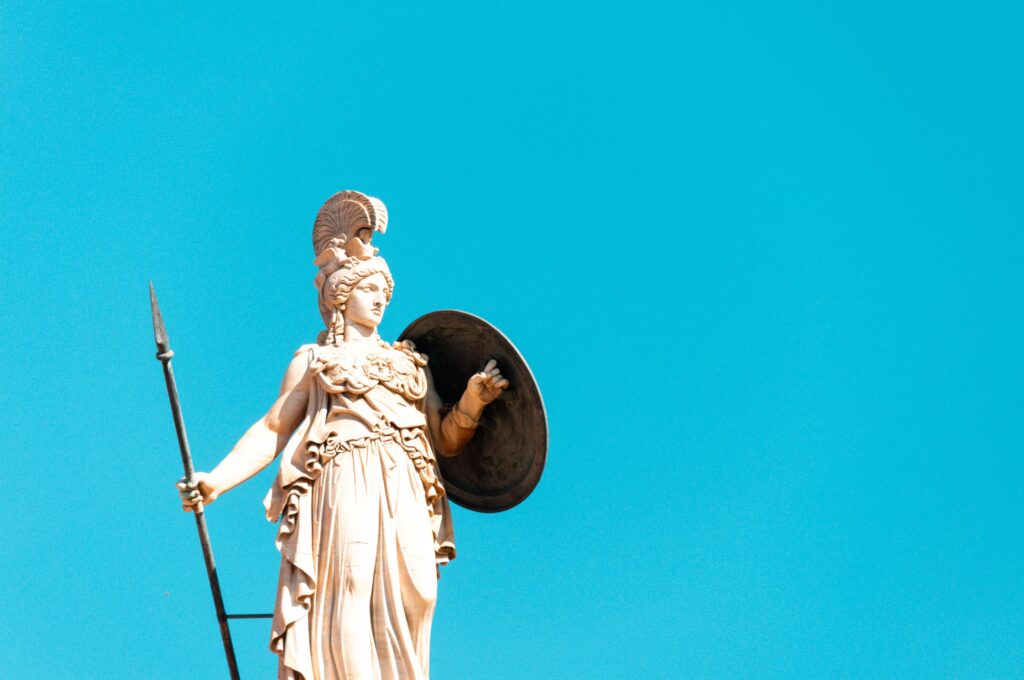How can we build knowledge? To fight our ignorance, we must first admit it //
Over the last centuries, we have raised our standards of living and conquered all the physical elements for happiness. But ignorance is still widespread and one of the greatest challenges of our century. With the advent of mass media and overwhelming access to information, the veil of ignorance has grown in its most nefarious form: the false presumption of knowledge. We think we know what we don’t really know. But how do we build knowledge? To fight ignorance in its most obnoxious form and build true wisdom in our society, we must admit to ourselves that knowledge is never complete and that our conclusions might always be faulty, and we must open ourselves to the constant perfecting of our opinions.
***

Human survival depends on the absence of threats such as danger, disease, extreme temperatures and imprisonment – so logically we feel immediate pleasure when we are safer, healthier, warmer (or cooler) and freer. A life without food, health, a safe shelter, freedom, sex and some social status will hardly be a very happy one. But there’s more to life. For the Ancient Greek philosopher Aristotle, true happiness, or eudaimonia, can only be achieved through the perfection of human faculties. Skills which aren’t innate nor quickly acquired forms of knowledge, but rather abiding traits that need to be achieved through long habituation and the exercise of our intelligence. The psychological reward for those isn’t likewise immediate, but gradually enabled by an investment of time and energy. Thousands of years later, the American psychologist Abraham Maslow got to a very similar conclusion and laid self-actualisation – or the constant perfecting of our talents and mental faculties – at the very top of his hierarchy of needs. Knowledge is bliss.
For most of our past, the ingredients to reach this complete state of happiness were largely a privilege of the elites, whilst most people would live in conditions we would today consider miserable. In the last centuries, we have created the middle class. Through economic, political and technological development, we’ve raised the standards of living of billions of human beings around the world from almost absolute darkness. More people die from obesity-related conditions than hunger, war is an exception and no longer the rule, and we have advanced systems in place to prevent, fight and control diseases. We are well-fed, safe and healthy. But the very last piece of the puzzle, and perhaps the greatest challenge of our century, is still missing. The perfecting of the human mind is a privilege of few, even within the wealthy, and ignorance still ravages even the most developed countries. We’ve created artificial intelligence but haven’t been able to popularise human comprehension.
With the growing availability of books, radio, television, the internet and information in general – what we call mass media – and, even more, with the growing political polarisation which leverages tribal emotions to build opinions (see polarization and the myth of political positioning), general knowledge became more widely available but ignorance grew in its most nefarious form. It now often hides under the ‘false presumption of knowledge’ – amathia, in Plato’s words, which he considered the origin of evil, and which the Italians appropriately translated to mezza cultura, or half culture.
“…General knowledge became more widely available but ignorance grew in its most nefarious form. It now often hides under the ‘false presumption of knowledge’ – amathia, in Plato’s words, which he considered the origin of evil…”
This presumed knowledge is built with insufficient effort. It’s based on shallow fragments of information and, allowing no time to contemplate complexity, leads to conclusions that are usually simplistic and absolute – assuming that which we don’t know must not be right (a true argumentum ad ignorantiam). It comes dressed as science and education, but barely scrapes the surface. It lives among journalists, politicians, internet philosophers and all classes of people who want to teach what they don’t really know. To some degree, it also lives in all of us who, overwhelmed with new information on a daily basis, don’t have time to build an in-depth understanding of all things but still feel responsible for an opinion.
True erudition is conquered with effort. To Aristotle’s and Maslow’s prescription, mastery needs to be researched, experimented, distilled and contemplated. It is constantly corrected, refined, perfected. It is firm in its observations but allows itself to change and evolve. Because this process is never completed, nobody should be trusted blindly or lay above our questioning, not even ourselves (see leadership and opposition) – although those who engage in the process should certainly receive more attention than those who don’t. And because nobody can perfect all faculties, there is no shame in the unknown.
We can therefore only build knowledge in our society and fight the mezza cultura if we restore a human skill that has fallen in disuse: humility. For Socrates, one of the wisest men in our human history, all wisdom begins with wondering, thus with admitting our own ignorance. To truly grow wiser, we should always be open to adding to our knowledge and revisiting our opinions, no matter how strong they are. We should not believe in anything religiously, but rather sceptically. Our discussions should not be seen as conflicts with winners and losers but as knowledge trade opportunities. We should use and share that knowledge we build but with the explicit caveat that it is, as all knowledge, incomplete. And because our knowledge is incomplete, we should open ourselves to the humble idea that our conclusions might be faulty – and only defend them accordingly.
See how to avoid biased opinions to for a quick guide to revisiting your opinions.



spot on. many thanks 🙏